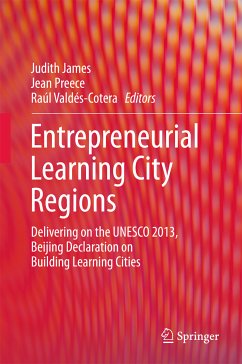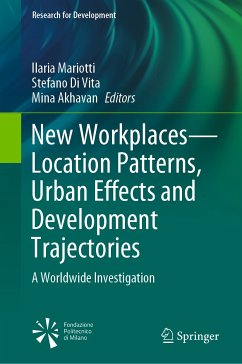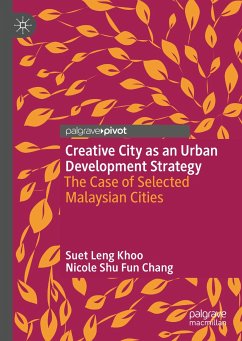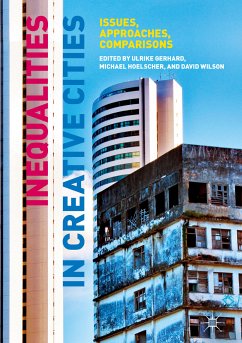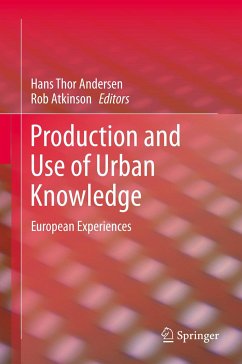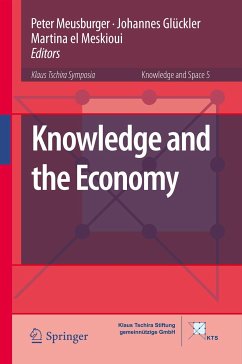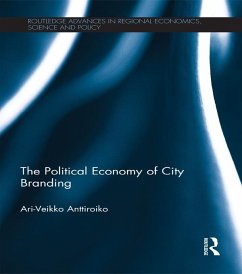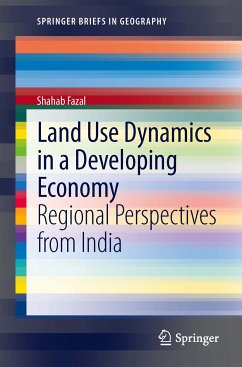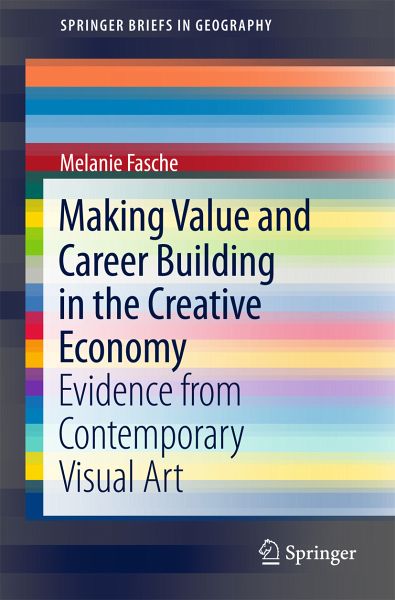
Making Value and Career Building in the Creative Economy (eBook, PDF)
Evidence from Contemporary Visual Art
Versandkostenfrei!
Sofort per Download lieferbar
48,95 €
inkl. MwSt.
Weitere Ausgaben:

PAYBACK Punkte
24 °P sammeln!
This work offers a nuanced perspective based on empirical evidence of the role of talent and creativity for economic growth, prosperity, social and spatial inequality, and precarity in creative cities by arguing that creativity and talent need to be valued and eventually rewarded to achieve sufficient conditions for individual economic success. Shedding light on the recent momentum of a growing convergence of cultural and economic spheres in post-industrial societies by building on a case study of contemporary visual art from interviews with commercial gallerists. Written from an economic geog...
This work offers a nuanced perspective based on empirical evidence of the role of talent and creativity for economic growth, prosperity, social and spatial inequality, and precarity in creative cities by arguing that creativity and talent need to be valued and eventually rewarded to achieve sufficient conditions for individual economic success. Shedding light on the recent momentum of a growing convergence of cultural and economic spheres in post-industrial societies by building on a case study of contemporary visual art from interviews with commercial gallerists. Written from an economic geography and historical-institutional perspective while leveraging the analytic strength of the established repertoire of other social science disciplines this book will provide a fascinating read for economic geographers and other social scientists researching the creative and knowledge economy as well as arts professionals aiming to better understand the process of making value of contemporary visual art.
Dieser Download kann aus rechtlichen Gründen nur mit Rechnungsadresse in A, B, BG, CY, CZ, D, DK, EW, E, FIN, F, GR, HR, H, IRL, I, LT, L, LR, M, NL, PL, P, R, S, SLO, SK ausgeliefert werden.



